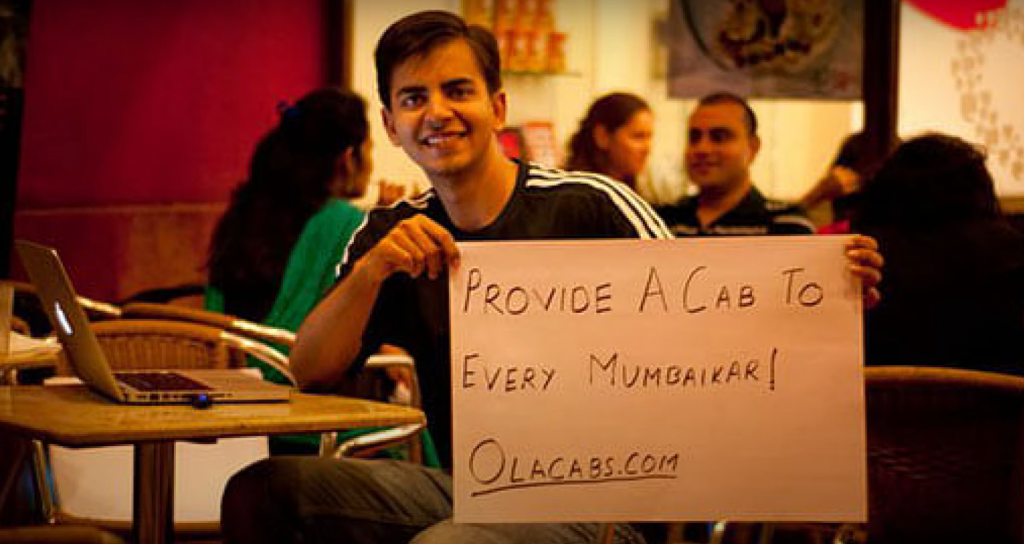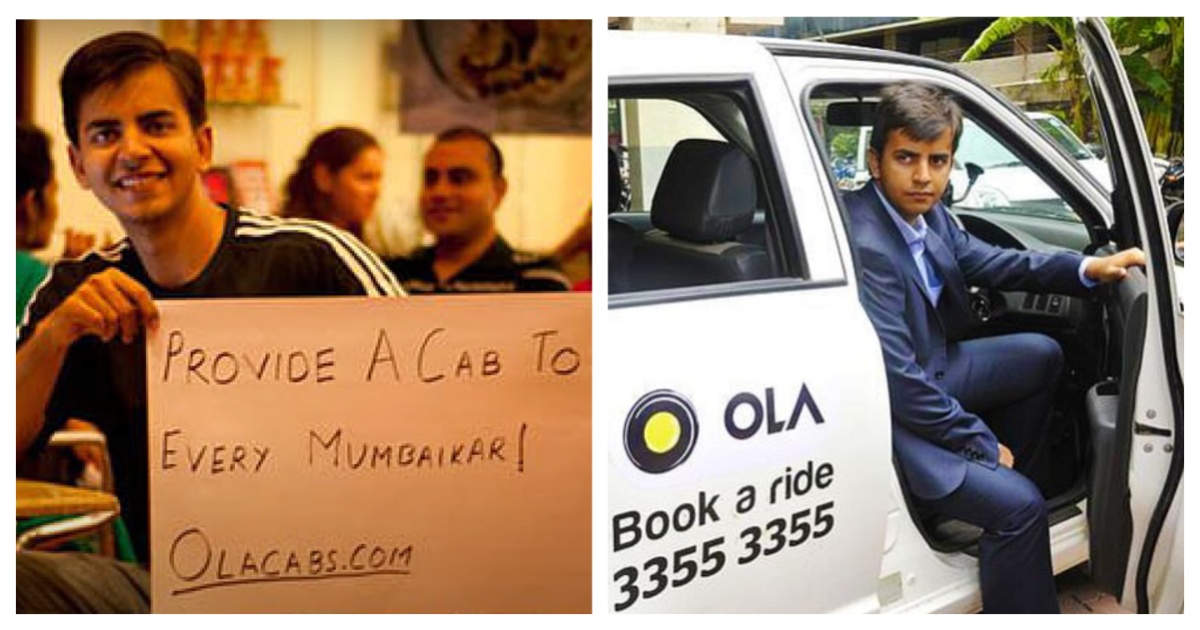Bhavish Aggaral might currently be a billionaire, and the proud founder of as many as three unicorns, but things were very different just over a decade ago.
Ola CEO Bhavish Aggarwal had himself driven cabs to fulfil orders in the early days of Ola Cabs. Aggarwal had founded Ola Cabs lall the way back in 2010. He’d graduated with a degree in Computer Science from IIT Bombay in 2008, and then worked with Microsoft over a year. At that point, the entrepreneurial bug bit him, and he founded a service to help people find taxis.

“Back in 2010, Uber wasn’t in India, and it had barely begun its operations in the US,” Aggarwal said on the ANI podcast. “So we began with a very Indian insight and thought process. We started off with a website: if someone wanted a cab from Delhi to Agra, or from Mumbai to Pune, we’d give you a phone number. Back then digital payments weren’t as popular, so you couldn’t book online — you had to call a phone number,” he said.
“That phone number was my number,” Aggarwal laughs. “I was the call center. People used to call, and I used to wake up at odd hours to find them taxis,” he says.
But Aggarwal says there were times when there were no taxis available. “When I couldn’t find a taxi, I myself used to drive customers,” he revealed. “My then-girlfriend — now wife — used to own a Maruti Swift. So I used to take her Swift and drive customers around,” he says.
Aggarwal has come a long way since then. Ola now has 15 lakh driver partners who ensure Aggarwal himself doesn’t need to drive any customers around any more. Also his other company, Ola Electric, now has a 50 percent market share in the electric 2-wheeler space. And Aggarwal has created yet another unicorn in Krutrim, which is making AI models and looking to design its own AI chips.
Incidentally, there had been another upside to Aggarwal himself answering phones and driving customers around in the early days of Ola. Last year, Shark Tank’s Anupam Mittal had revealed that he’d heard about Ola Cabs in 2011, and upon calling the call center, Aggarwal himself had picked up the phone. This had impressed Mittal, who had then invested into the company. “(Bhavish) reminded me of myself. Even when I’d started my businesses, I used to do all the work myself too,” he had said on a podcast. Which just goes to show that being hands on in the early days of a startup — answering phones and driving taxis — can something pay off in a big way later on.
